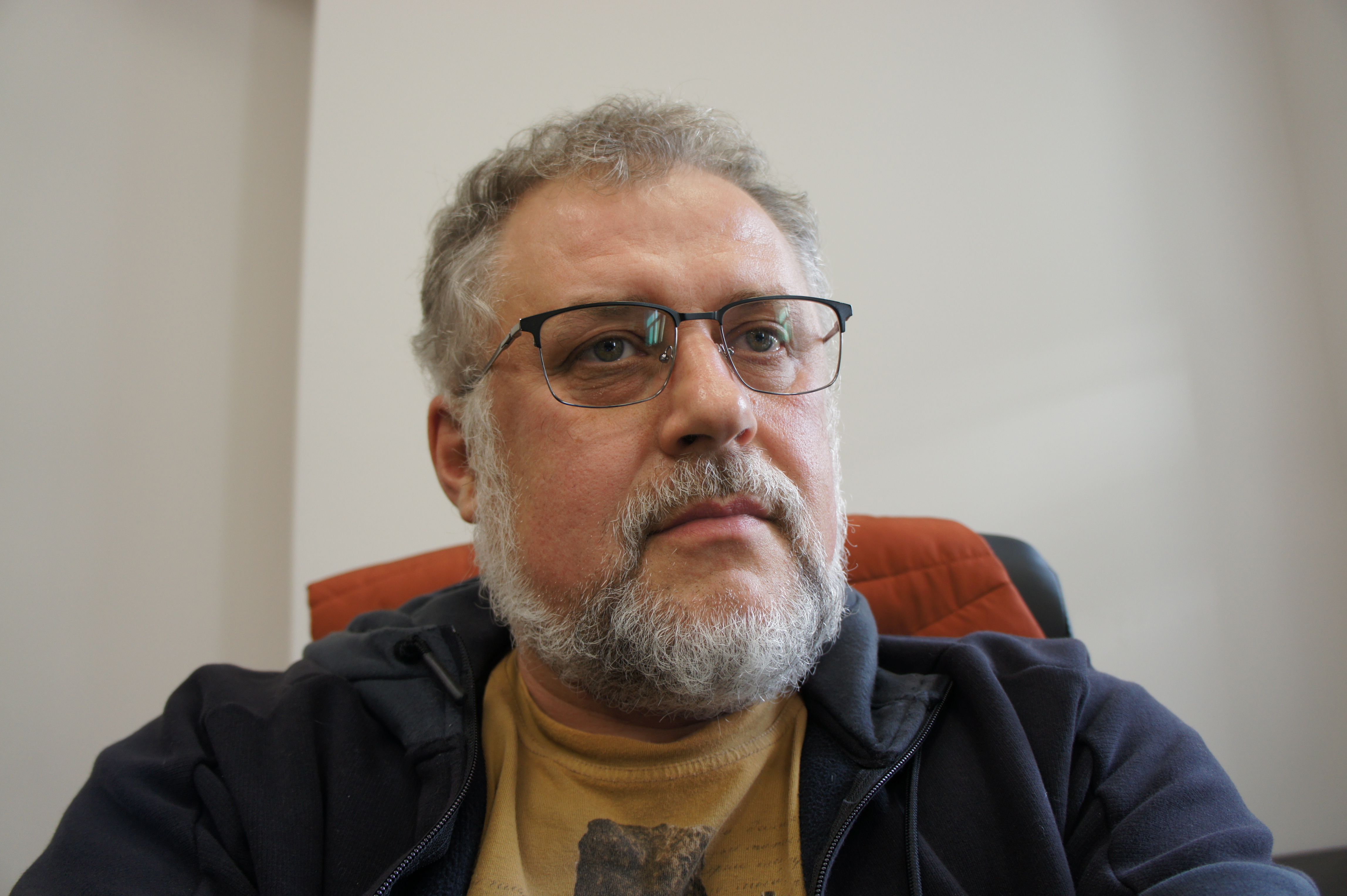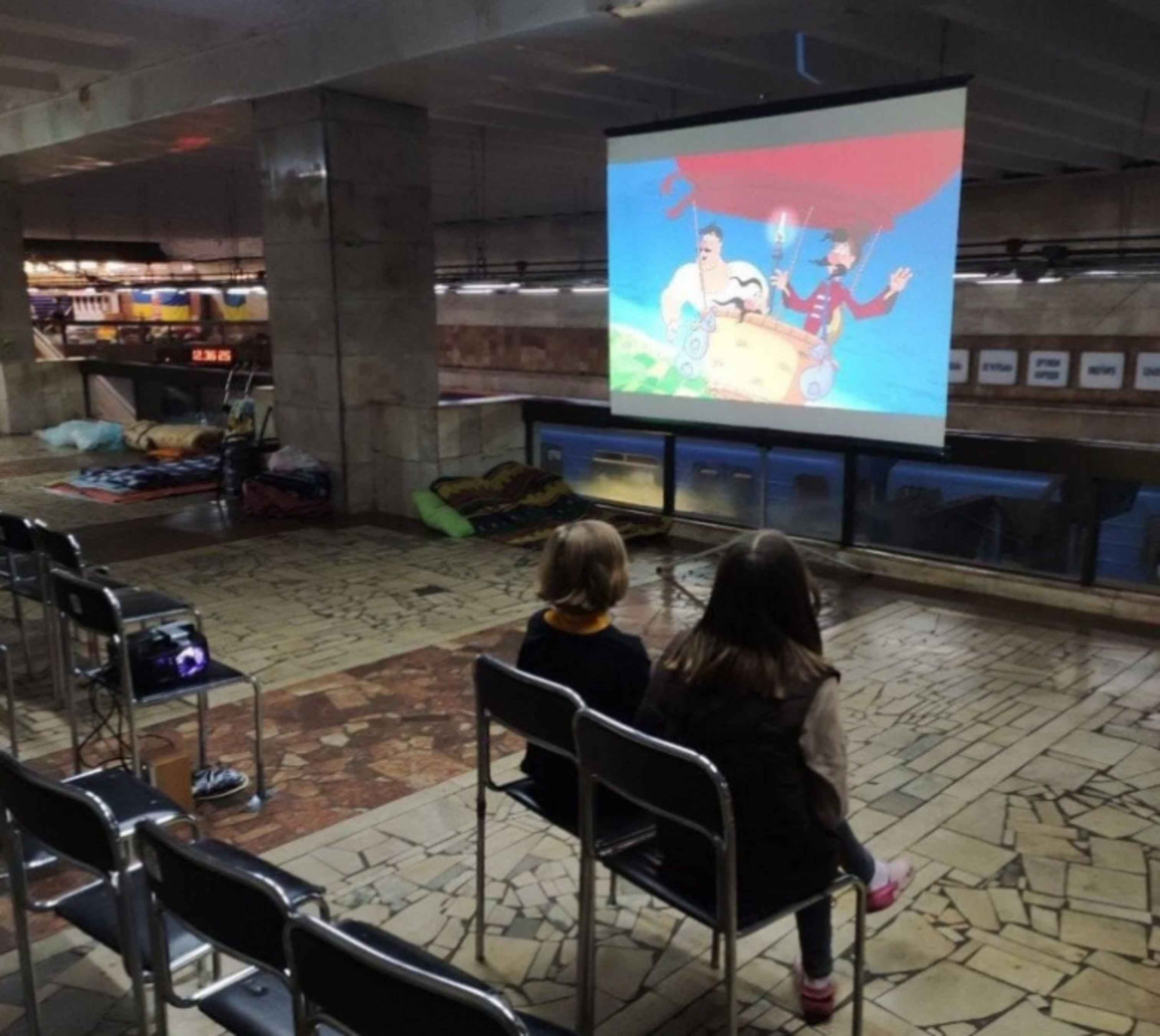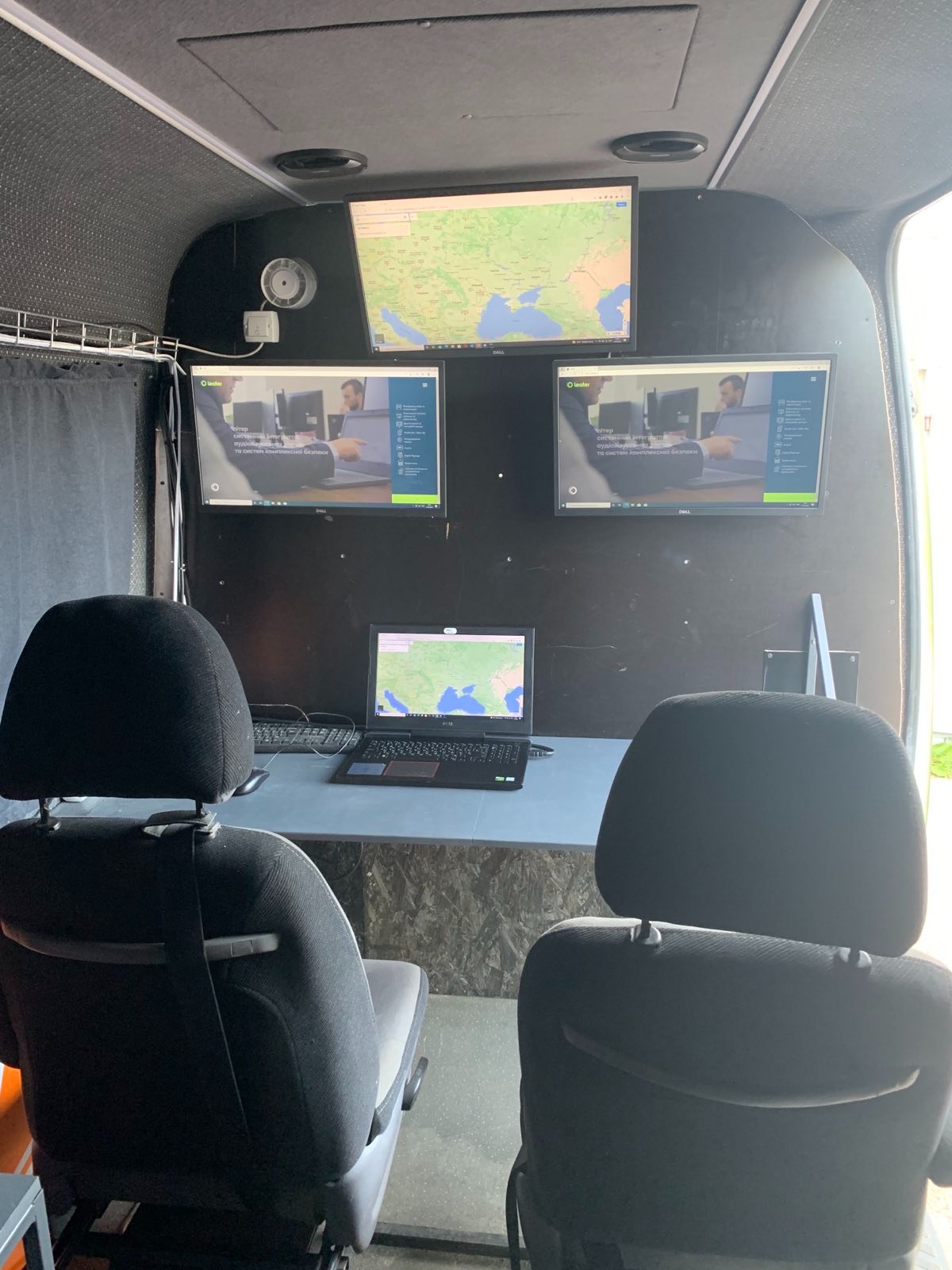The war in Ukraine has affected millions and torn lives apart. Reece Webb speaks to AV integrator
Leater to discover how AV integrators are fighting back.
against invasion.
Leater’s story begins in 1992 in a newly independent Ukraine. Rising from the ashes of the Soviet era, Leater expanded to become one of the biggest players in the AV market in Ukraine.
As a GPA member since 2020, Leater worked across every vertical from Lviv in the west, to the centre of Kyiv and all the way to the reaches of the Donbas in eastern Ukraine.
All of that changed in 2014. While Russia’s invasion of Ukraine may have kicked off in 2022, fighting has been ongoing in the
country for more than eight years. In a brazen move, Russia annexed the Ukrainian region of Crimea in 2014 and instigated a Russian backed rebellion in the industrial regions of Donetsk and Luhansk, wiping out Leater’s business in the east overnight.
Mykola Zhandorov, CEO, Leater, explains: “In addition to our western branch in Kyiv, we had an eastern branch in Donetsk before 2014 as well as a southern branch in Odessa. We lost our entire branch [in Donetsk] as well as a lot of our clients and product stock. It was a very hard process which cost a lot of money.”
The oncoming storm
February 24, 2022 is a day that many will never forget. When Russian helicopters and jets filled the skies, the bullets started to fly and the Russian Army began its march to Kyiv, the Leater team found itself in the middle of the firing line.
“I was shocked [when the invasion happened]”, says Zhandorov, “I believed it would happen, but when I slept in my bed and woke up to the sound of explosions from missiles and anti-air defences, I was in a complete state of shock. My family
was in the countryside near Kyiv as I had sent them away a week before the invasion so that they
would be safe.”
The Russian Army began to struggle its way through towards the city of Kyiv. Overnight, all AV work came to a halt as the country reeled from the shock and horror of the invasion.
Zhandorov continues: “On February 24, I took my family to the western part of Ukraine. During the trip, we were in contact
with the rest of the Leater team for the whole day. We tried to help people to evacuate and get people out of Kyiv.”
For Dmytro Melchenko, CMO, Leater, his experience was marked by supportive neighbours in the face of oncoming Russian oppression. Melchenko says: “By day three of the invasion, I could not escape from my village. The bridges had been blown up [to slow down the Russian advance] and the road was blocked. My neighbours and I looked after each other; we organised security, purchased food and gas, just supporting each other with the simple things. We even made sure that we fed the 40 cats in the village.

"Working on the website was a way of keeping myself sane.” - Dmytro Melchenko, Leater
“We had no electricity from the second day of the war, and we needed gas to power the generators. We stayed in touch
with our people who were staying in Kyiv; there were five of our team still there. We were in contact every day, and whenever I
switched on my generator, I was working. We were in the process of updating our website when the invasion happened. The website was supposed to go live on March 1, so working on the website was a way of keeping myself sane.”
The next few months would see Leater’s business grind to a halt as the war raged on. Night after night, the sirens wailed
mournfully as Russian missiles rained from the sky, forcing the people of Kyiv underground as their houses and businesses were torn to shreds by the invaders.
On the streets of Kyiv, people were being given weapons to defend against the oncoming horde pushing towards the city.
Fighting even took place near Leater’s former office, where several Russian tanks were destroyed less than a kilometre away.
Fighting back
As the missiles continued to fall, engineers of Leater Integration stepped forward with its rental division to deploy screens and
projectors in bomb shelters, showing films and cartoons to occupy the children and parents forced into unimaginable conditions.
Zhandorov explains: “We were always thinking about what we could do to help our people. We got humanitarian aid to Ukraine with our partners in Germany. We also started to produce flak vests and delivered medical supplies and food.
“Many Kyiv citizens were forced to spend a very long time in bomb shelters and subway stations. There were also many children there. We began to deploy screens and projectors in bomb shelters to show films and cartoons for children and their parents. This initiative was quite widespread, because everyone, where possible, tried to add a little comfort and peace for their neighbours and support each other.

"Internet providers provided free Wi-Fi, chefs prepared free food and drinks, and we joined in as much as we could - we installed the existing equipment and monitored its performance. After all, even a small contribution from anyone is very important.”
Leater deployed similar systems in five metro stations throughout Kyiv, searching through Leater’s warehouses and whatever equipment could be obtained through partners to bring a little peace to the civilians under the bombs.
Zhandorov says: “We started to think about what we can do as a business. With our own funds, together with other volunteers, we created a mobile command centre that controls drones. We did this for free, by putting forward more than €16,500 ourselves. We produced it and gave it to the army.
“We assembled a small complex with independent power supply and Starlink satellite communication. We've installed
three monitors and a video server inside, combining them into a united drone control workstation. This set of equipment allows operators to implement the ordered functions of control, processing of captured information and planning of operations, and most importantly - increases the safety of drone operators themselves, as well as other defenders for whom the specified control complex works.

“Taking into account the financial constraints and the dangerous conditions in which the centre will work (because command posts are a priority target), the solution was made as simple and cheap as possible. Functionality and the ability to quickly deploy, combined with cost effectiveness became the main priority during design and implementation.”
Support us
Melchenko says: “There are many children who go to school in replacement schools which have no AV equipment at all, which they desperately need in order to learn. Some schools are recovering, but they need more support.” Leater continues to do what it can with its current resources, but according to Zhandorov, more support is needed.
“We can import some AV products”, says Zhandorov, “many AV items are on the list of critical products, so we are able to import some things but we have problems with currency volatility, pushing up the cost of products. Right now, we need equipment: if it is old, but usable, then we can put it to work. If we can get unused equipment that is not being used by integrators in Europe, this can be used for our country’s schools, bomb shelters and other projects.”

"Right now, we need equipment: if it is old, but usable, then we can put it to work." - Mykola Zhandorov, Leater
Zhandorov adds: “A lot of schools need AV equipment such as screens, projectors and public address systems. Anything that
we can get, we can use effectively. Paying our staff also remains an issue, so funds to help keep them afloat would be greatly appreciated.
“The next thing for Leater is victory. Once victory is achieved, we will rebuild our country. It will be a lot of hard work to rebuild
everything that was lost. Now, we are trying to survive and help our employees. Together, with support,
we can achieve victory.”
How to help
To support Leater's vital work in Ukraine, you can donate funds directly or supply working AV equipment. Money raised will go towards supporting the Leater team, their families and the wider community. All donated equipment will go to where it is needed most in Ukraine, supporting critical projects that will help the country and the people of Ukraine get back on their feet.
To donate funds, please visit: https://www.fundsurfer.com/crowdfund/ukraine-av-fundraiser
To donate AV equipment, please contact: inavate@imlgroup.co.uk